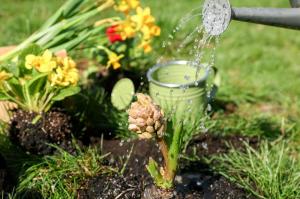Introduction
Citrus trees are a popular addition to many gardens and backyards around the world, well-regarded for their bright, refreshing fruits and easy maintenance. However, proper cultivation of citrus trees goes beyond simply planting them and hoping they thrive. The plants that grow around citrus trees can have a profound impact on their health, productivity and longevity. In this article, we explore the best options for planting near citrus trees to ensure that they remain healthy and productive for years to come.
The Benefits of Companion Planting
Companion planting (the practice of growing plants in close proximity to others to create symbiotic relationships) is a popular method for improving overall garden health and productivity while reducing the need for fertilizers and pesticides. When applied to citrus trees, companion planting can serve several beneficial purposes:
Providing valuable shade and wind protection
Attracting beneficial insects that can help pollinate flowers and control pests
Improving soil quality and fertility
Preventing the growth of competing weeds
Plants to Avoid
While companion planting can provide numerous benefits to citrus trees, certain plants should be avoided due to their propensity to undermine the citrus trees' health and productivity. These include:
Grapevines, which are known to compete for water and nutrients with citrus trees
Walnut trees, which are toxic to many plants, including citrus trees
Avocado trees, as they attract pests that can harm citrus trees
Companion Plants for Citrus Trees
While not all plants are suitable for companion planting with citrus trees, there are several excellent options that can help improve your tree's health and overall garden environment:
Lavender: This aromatic herb not only repels pests, but its deep roots can also help improve soil aeration and drainage.
Fennel: Fennel is an excellent companion for citrus trees, attracting beneficial insects and providing shade for the tree's shallow roots.
Nasturtium: These colorful flowers serve as natural pest repellents while also attracting pollinators.
Chives: Chives are a natural pest repellent while also helping to improve soil fertility with their deep roots.
Basil: Basil also acts as a natural pest repellent and can help improve soil fertility.
Tips for Successful Companion Planting with Citrus Trees
To ensure the greatest success with companion planting for your citrus trees, consider the following tips:
Keep in mind the size of the companion plants relative to the citrus tree. Avoid planting any plants that may overshadow or outcompete your tree.
Choose companion plants with similar moisture and sun requirements as your citrus tree to ensure they thrive together.
Be mindful of potential negative interactions between companion plants and citrus trees, such as competition for resources or susceptibility to pests and diseases.
Conclusion
Companion planting near citrus trees can provide a wealth of benefits, from natural pest control and improved soil health to enhanced pollination and shelter from wind and sun. By choosing the right plants and following a few simple guidelines, you can create a thriving garden environment that supports the health and productivity of your citrus trees for years to come.

 how many times do yo...
how many times do yo... how many planted tre...
how many planted tre... how many pine trees ...
how many pine trees ... how many pecan trees...
how many pecan trees... how many plants comp...
how many plants comp... how many plants can ...
how many plants can ... how many plants and ...
how many plants and ... how many pepper plan...
how many pepper plan...































